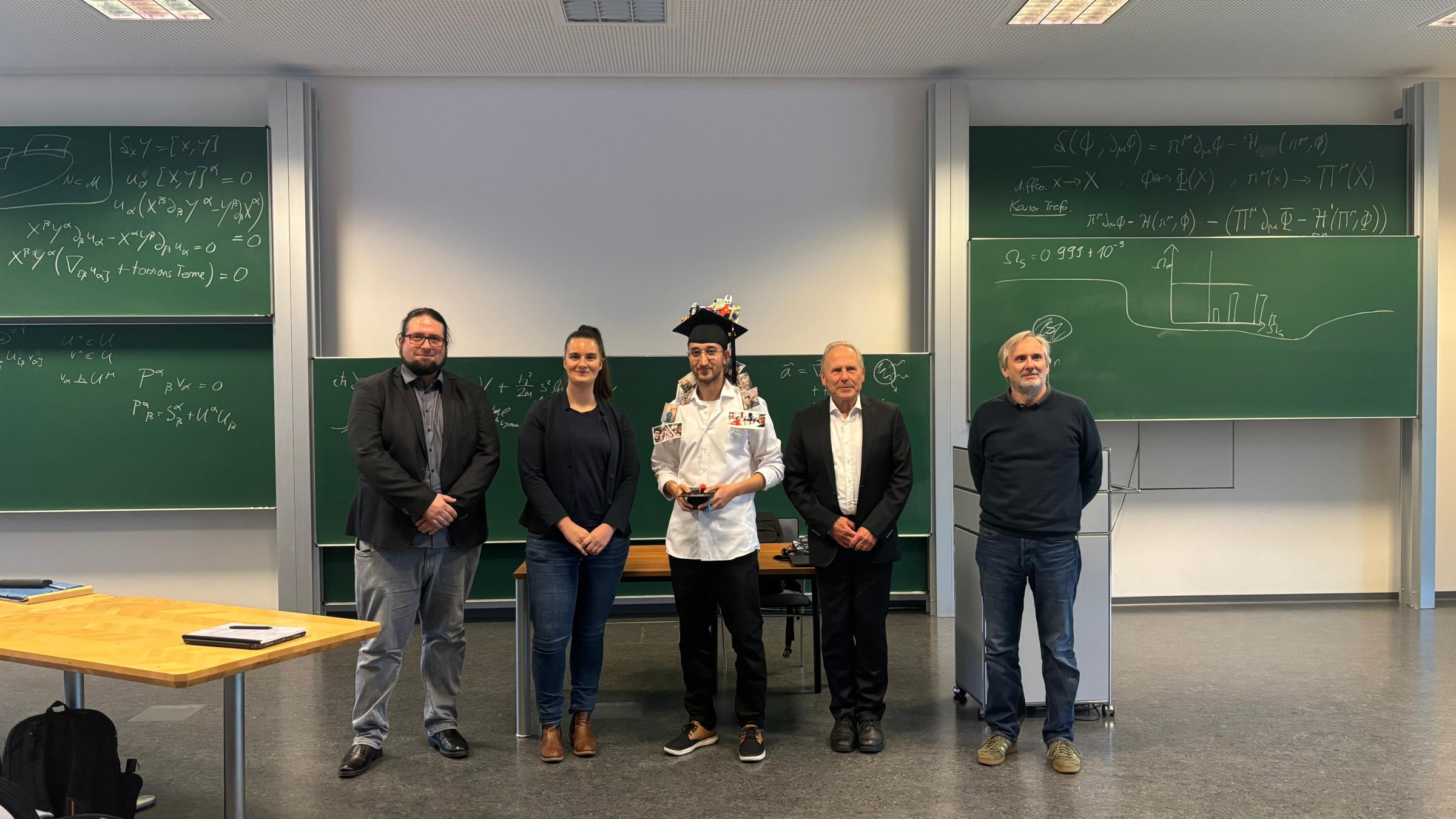October 10, 2025
What shapes the universe: Doctoral thesis by Armin van de Venn
Torsion in space
Today, Armin van de Venn successfully completed his doctorate under the supervision of FIAS Fellow Jürgen Struckmeier - "summa cum laude". His extension of established mathematical frameworks opens up new perspectives on the deep structure of spacetime and the origin of the cosmos.
Armin van de Venn's research addresses how torsion — a property closely linked to spin — could shape the universe and influence cosmological evolution.
In standard General Relativity, gravity is described solely by the curvature of spacetime. Van de Venn’s dissertation explored what happens when torsion, an additional geometric property, is taken into account.
The central innovation of his work lies in developing and analyzing theoretical models that incorporate torsion into cosmology. These approaches reveal possible consequences for the early universe, the avoidance of singularities, and the dynamics of cosmic acceleration. By extending established mathematical frameworks, the dissertation opens new perspectives on the deep structure of spacetime and the origin of the cosmos.
Looking forward, van de Venn aims to continue research at the intersection of gravitation, cosmology, and fundamental physics to contribute to a more complete understanding of the universe.
